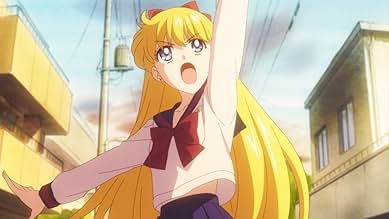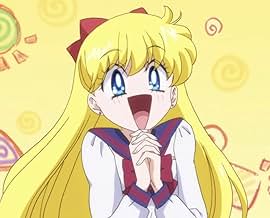Summary
Originally intended for children and pre-adolescent female audiences, this return of the characters from the cult anime series Sailor Moon Crystal as a film preserves their almost exclusively female universe of warriors and villains and their ability to perplex (and somewhat overwhelm) adult audiences. With its lysergic display, its complex and delusional temporal and narrative structure, its humor and the audacity and naturalness with which it proposes gender, sexual orientation and relationship issues for its characters.
Review:
When a total lunar eclipse occurs in the city of Tokyo, time stops and the Sailor Guardians meet again to face the agents of the Dead Moon Circus and a power that commands them and that wants to take over the Golden Crystal.
Return as a film of more than two and a half hours (there were previous ones), divided into two parts, of the Japanese cult series and gay icon Sailor Moon (in particular from the Crystal saga), Pretty Guardian Sailor Moon Eternal: The Movie, Called by Netflix as suitable for ages 7 and up, it unfolds a complex, crazy, romantic and apocalyptic story that is not easy to follow.
The film shows us a universe of heroines and villains almost entirely female, of warrior princesses who reunite from their "civil" life. It is a world with characters that change age, gay and non-traditional families, trans and androgynous characters, romantic relationships between girls and adults, princely but irrelevant boys and where the celebrated transformations of the heroines (the Sailor Guardians ) with its crystals, skirts and stylized nudes, young people and women in a state of permanent amazement, a magical world with jingles of Candy Crash and outbursts of humor.
The film respects the simple and bright anime graphics of the original series and allows interesting licenses with respect to the occasional character in that regard.
In short, intended primarily for children and pre-adolescent female audiences, this return of the characters from the cult series Sailor Moon (and a few more) retains its potential to perplex (and somewhat overwhelm) adult audiences with its lysergic display, its complex and delusional temporal and narrative structure and the audacity with which it proposes gender and sexual orientation issues.




































